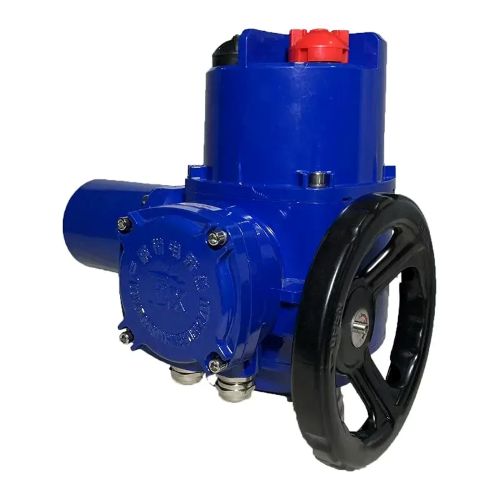


Unlocking Precision and Performance: The Power of Quarter-Turn Electric Actuators
Understanding Quarter-Turn Electric Actuators: A Smart Move in Valve Automation
We Are a Leading Control Valve Manufacturer in China, Delivering High-Quality Valves and Precision Actuators Designed to Meet a Wide Range of Industrial Requirements.
In today’s industrial landscape, precision and efficiency are crucial. From managing fluids in pipelines to regulating air in HVAC systems, controlling process flow accurately is essential. Among the technologies enabling this is the quarter-turn electric actuator—a compact, reliable solution reshaping valve automation.
A quarter-turn electric actuator is an electromechanical device designed to open, close, or modulate valves that operate with a 90-degree rotation. Commonly used with ball, butterfly, and plug valves, these actuators convert electrical energy into mechanical torque to move the valve stem.
Unlike pneumatic or hydraulic actuators, electric versions eliminate the need for compressed air or fluid power, making them simpler, cleaner, and often more energy-efficient.
Quarter-turn electric actuators typically include:
Electric motor – Powers the actuator using AC or DC input.
Gear train – Reduces motor speed and amplifies torque.
Position sensors and limit switches – Provide accurate feedback.
Manual override – Allows manual control during power loss.
Sealed housing – Offers protection against water, dust, and corrosion.
Once energized, the actuator rotates the valve precisely 90 degrees, either fully opening or closing it, or positioning it at an intermediate state for flow control.
These actuators offer several advantages:
Compact design – Ideal for space-constrained installations.
Energy efficiency – Power is used only during movement.
High accuracy – Suitable for modulating applications.
Easy integration – Compatible with SCADA and PLC systems.
Low maintenance – No compressors or hydraulic systems required.
Water & wastewater treatment – For flow regulation and chemical dosing.
Oil & gas – In hazardous areas with explosion-proof options.
HVAC systems – For damper and valve control in ventilation systems.
Food & beverage – With hygienic stainless-steel designs for sanitary environments.
Power generation – Managing cooling, steam, and emissions systems.
When choosing an actuator, consider:
Torque rating – Ensure it exceeds the valve’s maximum torque by at least 20%.
Voltage supply – Match to available AC or DC power (e.g., 24VDC, 220VAC).
Duty cycle – For frequent cycling, pick a high-duty-rated unit.
Enclosure rating – Look for IP67 or explosion-proof models if needed.
Control type – Choose on/off, modulating, or failsafe options.
Quarter-turn actuators are low-maintenance but benefit from periodic checks:
Inspect and tighten electrical connections.
Lubricate gears as recommended.
Keep the housing clean and clear.
Test calibration and feedback signals.
Practice manual override procedures.
While quarter-turn actuators rotate 90 degrees and suit fast-acting valves like butterfly and ball types, multi-turn actuators perform multiple rotations and are suited for gate or globe valves that require longer strokes. Quarter-turn actuators are typically faster, simpler, and more cost-effective.
With growing trends in smart automation and sustainability, modern quarter-turn actuators now offer features like Bluetooth connectivity, remote diagnostics, and IIoT integration, making them a strategic choice for next-generation infrastructure.
Quarter-turn electric actuators deliver a powerful combination of precision, efficiency, and adaptability. Whether you’re upgrading systems or designing new installations, they offer a future-ready solution for efficient valve automation.
